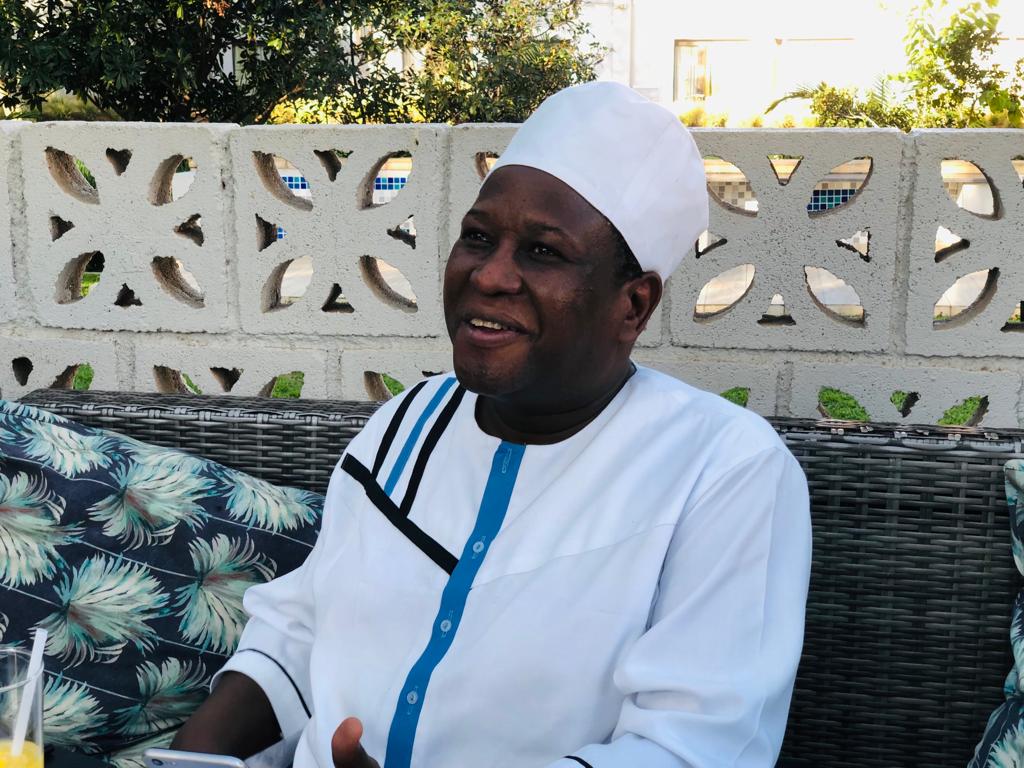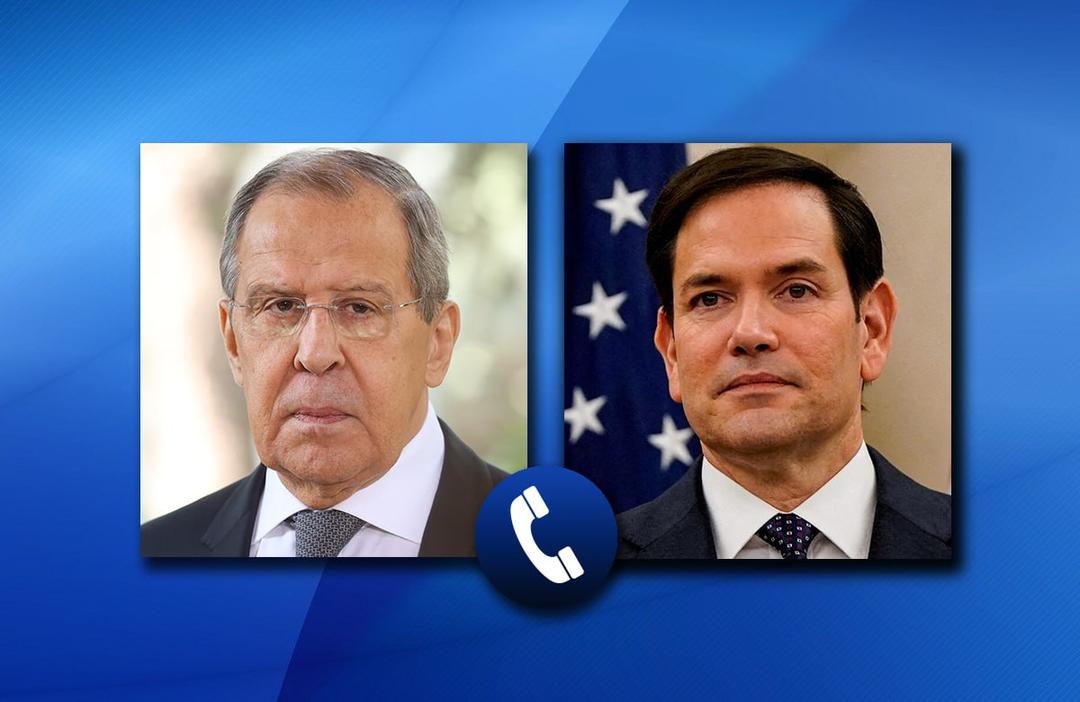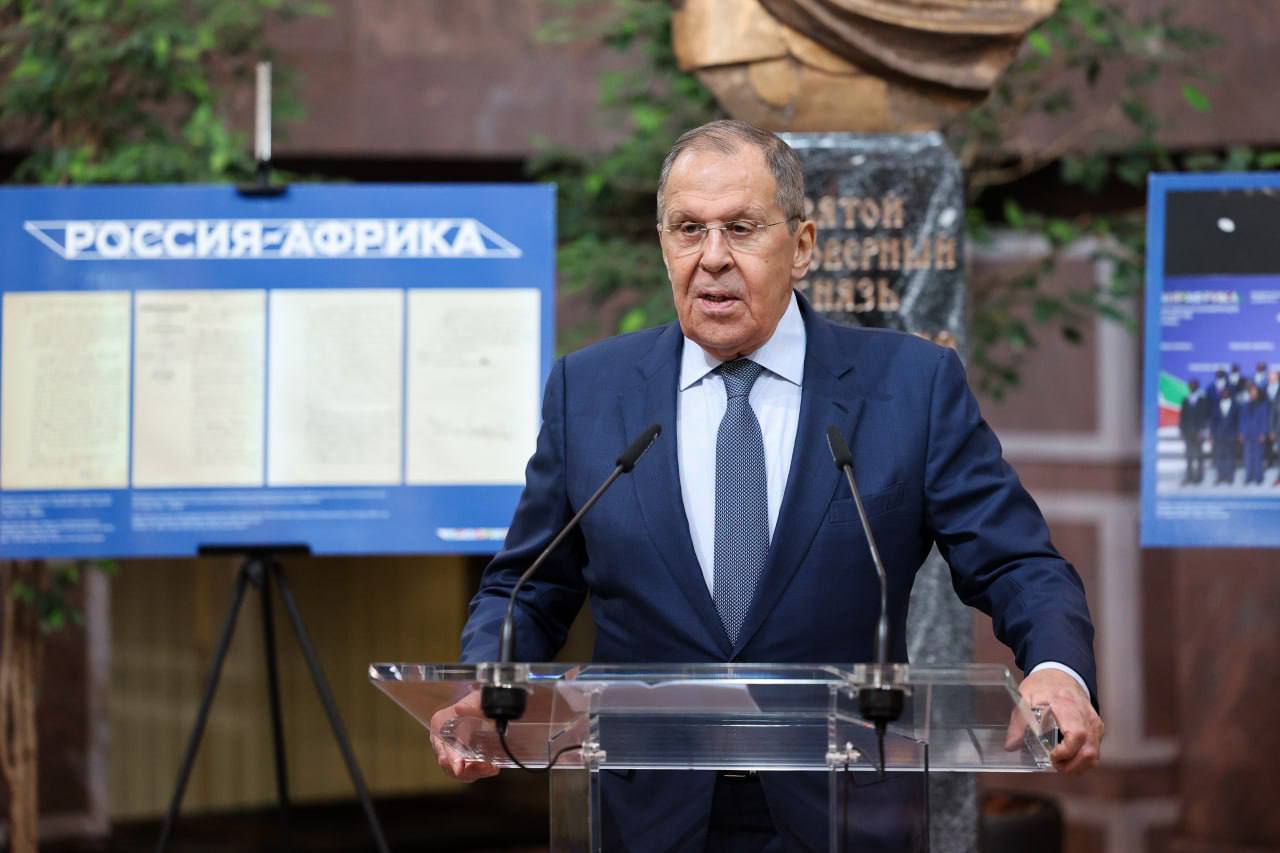
In a series of unflinching interventions before the 83rd Session of the African Commission on Human and Peoples’ Rights (ACHPR) held in Banjul from May 2 to 12, 2025, the Deputy Permanent Representative of the Sahrawi Arab Democratic Republic (SADR), Ambassador Malainin Lakhal, delivered a powerful indictment of Morocco’s continued occupation of Western Sahara, denouncing what he called as a “modern colonization”, “illegal Settlement occupation” and “continuous crime against humanity” committed by the Kingdom of Morocco against, Western Sahara, “Africa’s last colony.”
Speaking on behalf of the Sahrawi Republic, Ambassador Lakhal issued nine official statements addressing multiple aspects of the human rights situation and crisis in Western Sahara, from the Moroccan hindrance of the exercise by the Sahrawi people of their right to self-determination, to systematic torture and enforced disappearances, passing by media censorship, gender-based violence, and the weaponization of food aid.
Lakhal opened his remarks by echoing ACHPR Chairperson Remy Ngoy Lumbu’s assertion that “Africa is sick” due to the disregard for human and peoples’ rights. “I cannot agree more on this diagnostic,” he said, calling Western Sahara the site of one of the most “severe, persistent, and yet overlooked” humanitarian and human rights catastrophes on the continent.

Lakhal especially emphasized the nature of the Moroccan presence in the territory as a state of illegal occupation and continuous colonization.
He recalled the participant that the Sahrawi people have suffered for decades “under foreign military occupation, in clear violation of African and international law — including the African Charter, the UN Charter, and the AU Constitutive Act. This occupation is not only a denial of sovereignty to a founding AU member, but also the source of widespread, systemic abuses that this Commission and all relevant African and UN bodies can no longer ignore, given the grave implications for regional and continental stability.”
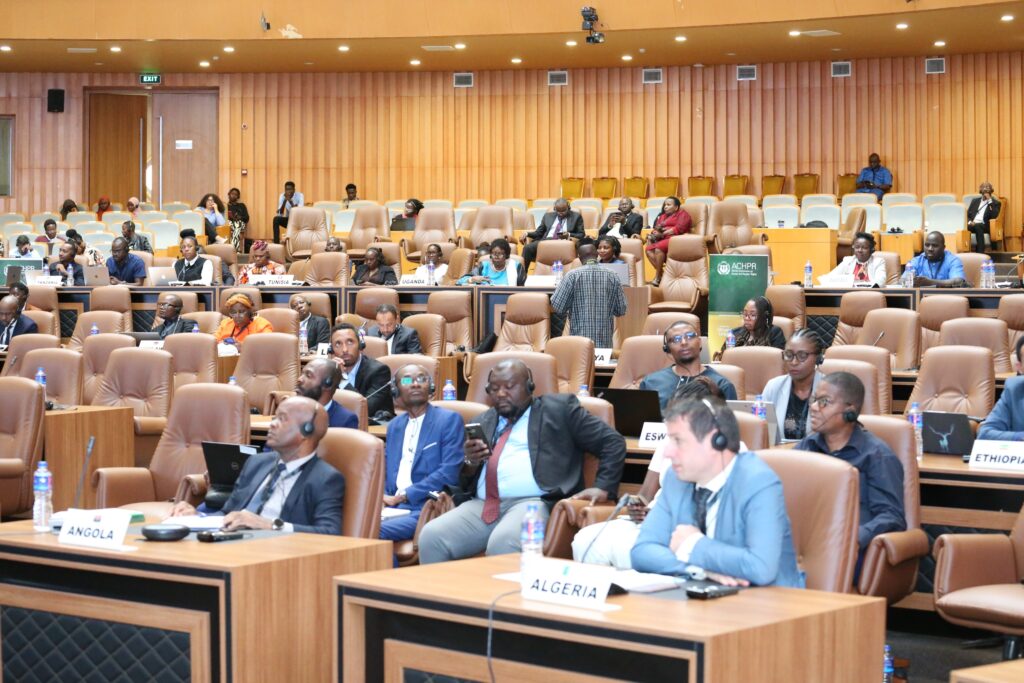
In his successive statements, Malainin Lakhal accused Morocco of carrying out a deliberate campaign of repression, citing enforced disappearances, extrajudicial executions, torture—including of children and disabled individuals—sexual violence, and arbitrary arrests. Homes have been destroyed, water wells poisoned, and livestock endangered, with Sahrawis displaced to make way for Moroccan settlers occupation, he said.
He condemned the “shameless economic aggression” involved in the looting of Western Sahara’s natural resources by countries and nations that claim to be democratic and champions of human and peoples’ rights, pointing to the 2024 European Court of Justice ruling which reaffirmed the illegality of such exploitation.
Lakhal highlighted the Gdeim Izik group—Sahrawi political prisoners convicted in widely criticized trials—as a symbol of Moroccan impunity. He accused ex-colonial powers of shielding Morocco from accountability.
Furthermore, the Sahrawi Ambassador drew attention to the breakdown of the ceasefire since November 13, 2020, noting that Moroccan drones have targeted Sahrawi civilians, often with internationally prohibited weapons. He labeled these attacks as ongoing war crimes executed by the Moroccan army in total impunity under the protection of some Western allies.
He further condemned the blackout on independent media and international observers in occupied Western Sahara. “Western Sahara has become Africa’s largest open-air prison,” he said, emphasizing that the ACHPR itself has been barred from visiting since 2013 and is still unable to fulfill its mandate in the occupied territory due to the Moroccan obstacles that remain unpunished and executed in total impunity.
He warned that this silence equates to complicity, stressing that “justice delayed is not just justice denied—it can be perceived as complicity.”
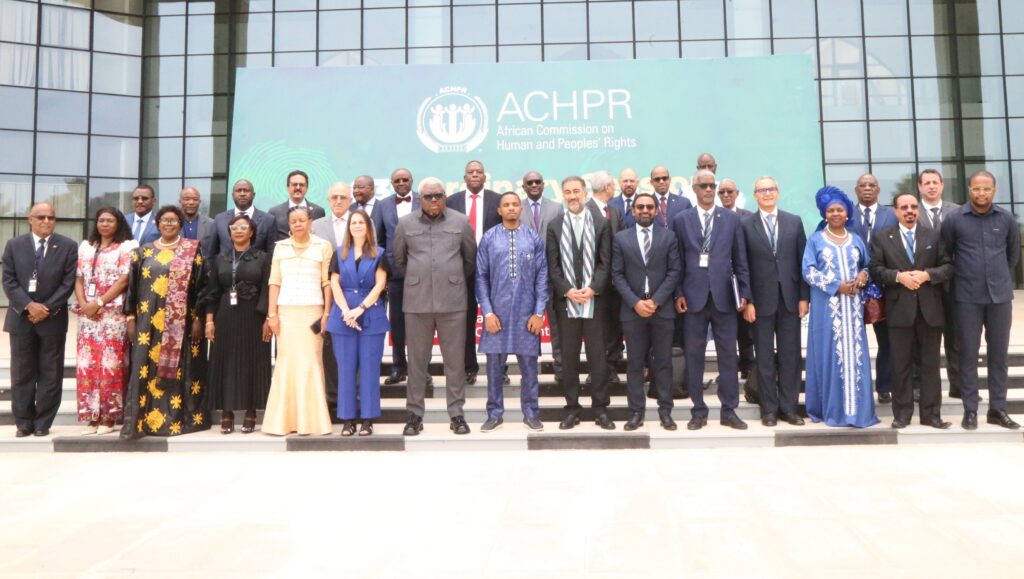
On another hand, the Sahrawi diplomat singled out the case of human rights activist Sultana Khaya, who, along with her family, was subjected to a brutal house arrest, physical abuse, and sexual violence. He detailed recent assaults on the families of political prisoners following the launch of an international solidarity campaign.
He urged the ACHPR to conduct a fact-finding mission, demand the release of all Sahrawi political prisoners, and call for a permanent human rights monitoring mechanism in Western Sahara.
Citing data from the Association of the Families of Sahrawi Prisoners and Disappeared (AFAPREDESA), Lakhal described the disappearance of thousands, with some detained for over 17 years. He referenced the “Oasis of Memory” report, which documents over 800 cases between 1975 and 1993—deeming the rate of disappearances among the highest globally.
He shared chilling stories, including that of 14-year-old Bachir Ould Selma Daf, abducted in 1976 and never seen again, and a mass grave of Sahrawi nomads executed by Moroccan forces.
Ambassador Malainin Lakhal slammed Morocco’s suppression of activists, citing the use of spyware like Pegasus to target activists such as Aminatou Haidar and arbitrary arrests of journalists like Mohamed al-Bambary and Nezha Khalidi.
He recounted violent crackdowns on peaceful protests, home surveillance, and threats against activists like Mahfouda Lefkir. “These actions violate the African Charter and international standards,” he said, urging independent investigations and systemic reforms.
Addressing the ACHPR’s Committee for the Prevention of Torture, Lakhal emphasized the use of torture and psychological abuse in Moroccan prisons. The case of the Gdeim Izik prisoners was again cited, with confessions extracted under duress and the denial of medical care.
He painted a harrowing picture of detainees in solitary confinement, mold-ridden cells, contaminated water, and deliberate malnutrition. “These are not systemic failures—this is the system itself,” he stated.
The diplomat also spoke of the grave conditions faced by Sahrawi women, who he said are victims of sexual assault, online harassment, and medical neglect. He cited the April 2025 raid on families of political prisoners, where mothers and sisters were beaten and accused of “raising terrorists.”
He condemned the weaponization of spyware and disinformation campaigns aimed at female activists and called for urgent, gender-responsive intervention.
Finally, Lakhal turned to the plight of the Sahrawi refugees, stating that over 200,000 of them live in the South-west of Algeria, because of the illegal invasion and colonial war waged against them by the Moroccan forces of occupation since 1975. He warned of a growing humanitarian emergency with child malnutrition, anaemia, and a daily caloric intake far below international minimum.
He accused some international donors of politicizing aid to pressure the Sahrawi people, calling it a violation of humanitarian neutrality.
Throughout his statements, Malainin Lakhal urged the Commission and all AU institutions to uphold their responsibilities, including through visits, investigations, and urgent appeals. He underscored that Western Sahara’s decolonization remains unfinished and that selective application of the African Charter undermines the AU’s legitimacy. He also emphacized that the Commission should not use political considerations or political decisions by any other Organs to justify its failure to cover, monitor and report about the situation in the occupied territories.
“History will judge us not by our words… but by our actions,” he declared. “This is a modern colonization… and a grave assault on African dignity taking place in front of your eyes.”
With stark warnings and undeniable urgency, Sahrawi Ambassador Malainin Lakhal’s address to the Commission marked a clarion call for Africa to finally confront one of its longest-standing and most painful injustices. The question that remains is how the African Commission for Human and Peoples’ Rights will react to such clear call for action in a clear case of colonialism and total human rights and peoples’ violations taking place in modern time. Would it really act, or would it continue its previous stance of keeping quiet in front of such dangerous situation, maybe intimidated by Morocco, a thug state that doesn’t hide its colonialist methods against any organ or actor who dare to name things as they should or who dare stand against its violations and colonial fait accompli.







